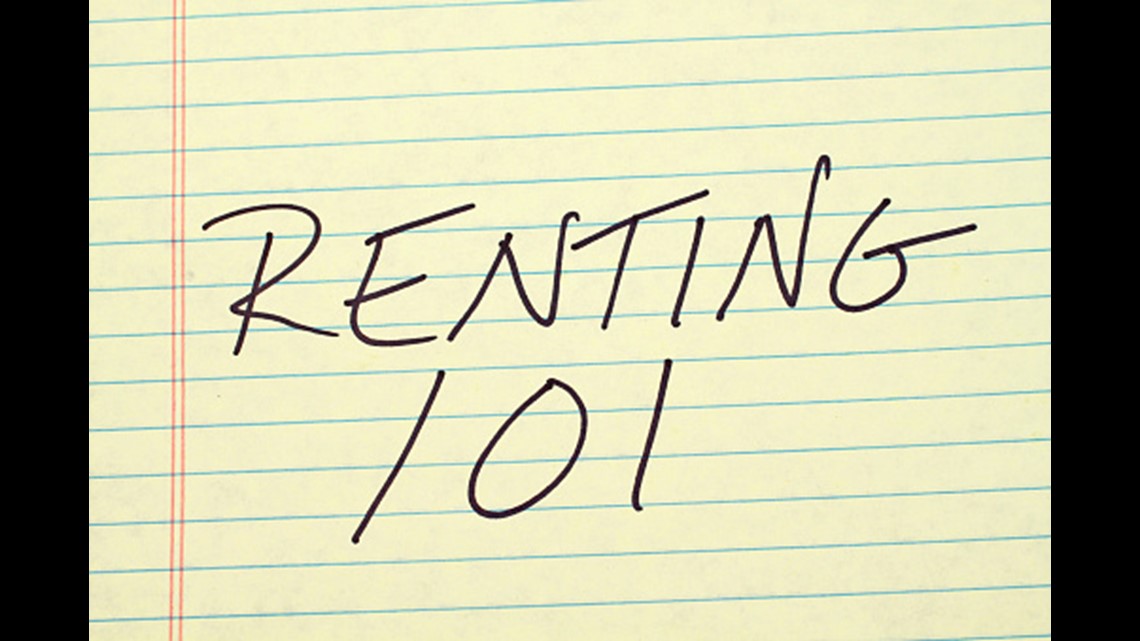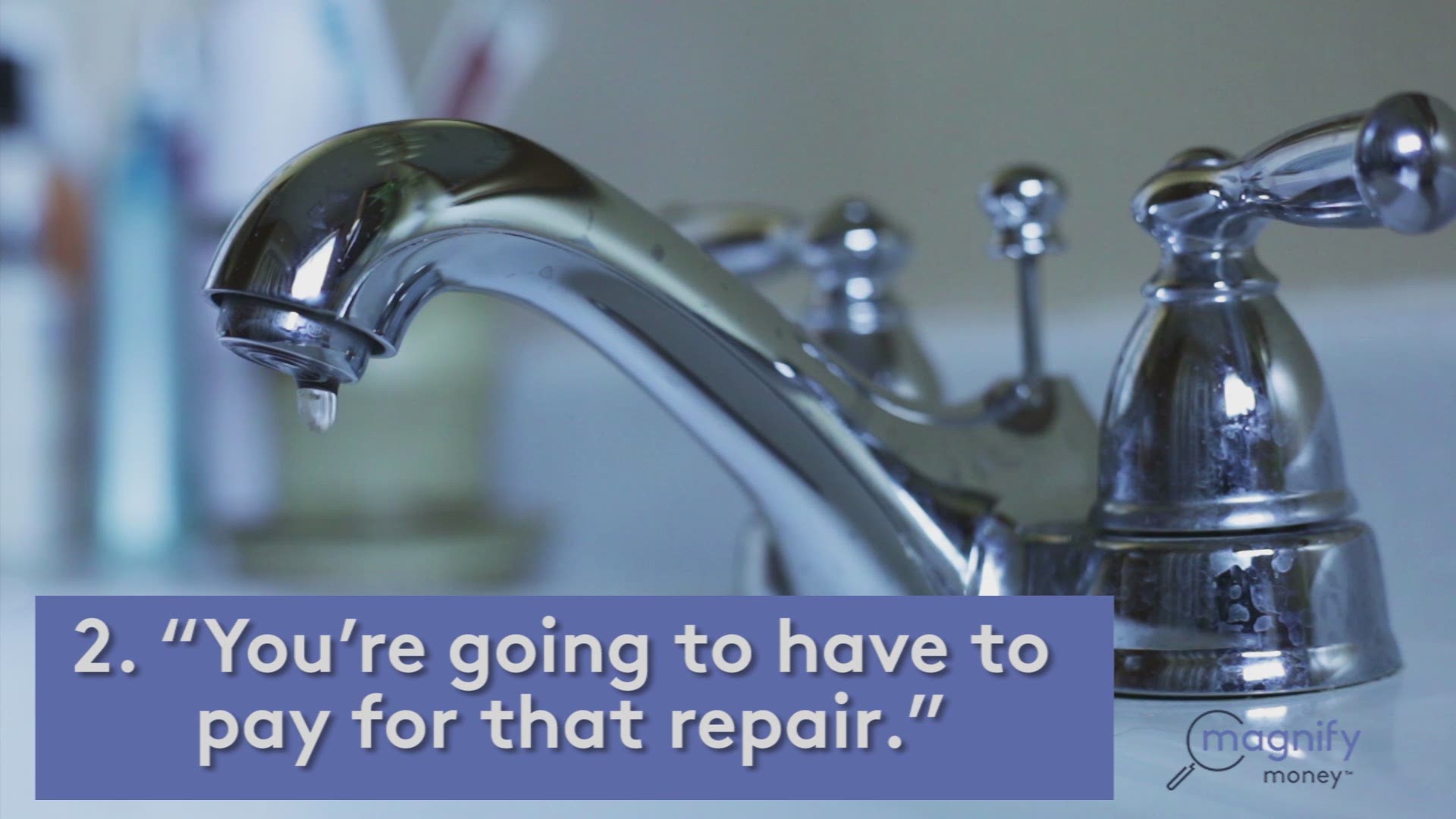Finding a place to rent can be so time-consuming and stressful that once you decide on a house or apartment that fits your budget, size, and location needs, you might not pay attention to the mundane lease terms or if the landlord is trustworthy.
However, if you have a shady landlord and lease agreement, you could pay more for your rental and be stuck handling repairs.
Andrea Amszynski, a speech therapist, thought she had a perfect situation when she found a room for rent in a five-bedroom, three-bath house when she was moving to Savannah, Ga. The room was advertised on Craigslist, and she made an appointment to view the house.
“I met the landlord, or who said he was the landlord at the time,” she says. “And he showed me all round the house.”
She signed a lease and put down $700, which included one month’s rent and a security deposit. A few weeks later, when she couldn’t get hold of the landlord, she discovered the man she paid wasn’t the landlord, but a past tenant scamming her. She filed a police report, but was unable to recover her deposit.
Though this is a fairly extreme case, there are other ways that landlords mislead tenants. At a time when half of renters spend at least 30% of their household income on rent and utilities, being on the lookout for these lies may keep you from spending more than you need on living expenses.


1. “I can get you a great deal on the rent.”
While some parts of the lease can be clear, some landlords will try to bury items in the lease that could cost tenants.
One practice is known as concession pricing. Joel Cohn, legislative director for D.C’s Office of the Tenant Advocate, says he has seen this tactic used in rent-controlled buildings in Washington, D.C.
Here’s how it works: The amount for a one-bedroom apartment is $1,500, but that’s a high rent for the area. The landlord advertises it for $1,000 to attract potential renters, but reports the $1,500 to the rent administrator — the office in some large cities that controls rent — and then buries the $1,500 amount in the lease.
The landlord essentially is telling the tenant, “Yeah, this $1,500 amount, don’t worry, we’re going to give you a concession deal. You only have to pay $1,000. And, by the way, this is rent controlled, so you’re protected in terms of the amount of rent increase,” Cohn says. However, if the tenant decides to renew their lease, they may see their rent not just go up to $1,500, but $1,500 plus the rent control cap for the area. The landlord would legally be allowed to raise it that much since they told the rent administration that they were already charging $1,500 for rent.
2. “You can break your lease any time you want.”
Another term buried in the lease that could cost tenants in the long run is “contract renewal terms.” In this situation, the rent agreement is renewed for another year if the tenant doesn’t inform the landlord within a certain period — typically 60 days — from the end of the first agreement.
“Then, if you want to get out of what they’ve written, you’ve got to pay so much money … like a whole month’s rent,” says Sarah Hubbuch, who manages two properties in Georgia and Florida.
3. “You’ll have to cover the cost of that repair.”
Repairs are inevitable, such as a clogged toilet, leaky pipe, air conditioning unit that blows out warm air, broken refrigerator, or burned-out light bulbs. However, problems can arise about who should pay for the repair and how quickly the repair needs to be done.
Hubbuch says things such as appliances, water heaters, or anything that could need repair after normal wear and tear should be a landlord’s responsibility to fix and cover financially.
“It’s part of the contract,” she says. “And me, personally, I would tell the landlord I can’t pay rent until these things are fixed.”
But that also may mean you’ll have to buy fans until the landlord decides to fix the AC or pick up a pack of new light bulbs.
4. “You’re not getting any of your security deposit back.”
Cohn says inappropriate deductions from security deposits are a common complaint filed by tenants.
“An appropriate deduction from the security deposit would be something beyond ordinary wear and tear,” he says. “So, if the tenant caused some damage to the property, then it would be appropriate for the landlord to make that deduction.”
As a property manager in California, David Roberson says the traditional security deposit of one month is more than enough for repairs. He is principal of Silicon Valley Property Management Group, which manages apartments for rent in San Jose, California.
“Most of the time, tenant damages are less than $1,000 to a unit when they’re leaving, so if you get a $5,000 security deposit (typically up to two months’ rent), that’s going to be fairly adequate to cover 99% of the damages,” he says.
If there is no damage, a tenant should receive their security deposit back in a timely manner. Depending on the state, that time frame can change. For example, in Washington, D.C., landlords have to provide the tenant with an itemized list of deductions to cover appropriate expenses. The list needs to be sent to the tenant within 45 days after they move out, and the price tag attached to repairs needs to be reasonable. Landlords then must return the remaining balance to the past tenant in an additional 30 days after the tenant received the list.
Check your state’s rental guidelines on security deposits to be sure you know when to expect your deposit back.
5. “I can come and go as I please.”
Understandably, a landlord may need to enter the rental at some point during the lease. Each state has its own rules for under what circumstance and with how much notice they would need to give tenants before entering the property.
“When a tenant signs a lease, they actually hold the rights to the leasehold,” Roberson says. “So for the term [of the lease], it’s their property.”
In California, he says, landlords need to get written permission to enter a property, or there has to be reasonable evidence that the tenant is violating terms of the lease, is doing something illegal, or there is an emergency.
Cohn says that in other states and D.C., generally landlords need to give a “reasonable” written notice 48 hours ahead of time in non-emergency situations.


Tips for protecting yourself as a renter:
1. Research your landlord before signing the lease. Ask current tenants about their experience with the landlord. In some instances, you also may find landlord reviews online through sites such as Yelp and Review My Landlord. And if you want to confirm that the person is indeed the landlord, look up the property record online to find the owner’s name. “Most of the time the landlord should be paying the property tax, and that is public info,” Amszynski says.
2. Get everything in writing. Read the lease thoroughly and ask about any lingo or terms that are confusing. In addition, get any verbal agreements, such as rental rates or promises to repair items before you move in, in writing. Protect your security deposit before you move in by walking through the rental with the landlord. “Make sure that you and the landlord go through the list of things that were already wrong with the house before you move in so they can’t come back and say you did it,” Hubbuch says.
3. Know tenant rights for your area. A Zillow study in 2014 found that 82% of renters don’t understand laws on security deposits, credit, and background checks, 77% of renters don’t understand privacy and access rights, and 62% of renters don’t understand laws on early lease termination.You’ll be able to find resources online that outline tenant rights and landlord rights in your state. The Washington, D.C., Tenant Bill of Rights and the California Tenants guide are two examples of guides.
4. Get insured. Renters insurance covers damage to your belongings inside a rental, but only 41% of renters said they had renters insurance, according to 2016 data from the Insurance Information Institute. Premiums average $15-$30 a month, depending on the size and location, and the average U.S. premium for renters insurance is $190 for 2014 — the most recent year available — according to the National Association of Insurance Commissioners. A standard renters insurance policy also covers your liability for injuries to someone else or their property while they are at your rental, but it doesn’t cover damages you might make to the property. Roberson says he requires his tenants get tenant liability insurance to cover up to $100,000 in damages from situations such as a fire or driving cars into garage doors. He offers it to them for $14.50 a month. The Insurance Information Institute notes an excess liability policy generally costs between $200 and $350 annually, which provides an additional $1 million of protection.
MagnifyMoney is a price comparison and financial education website, founded by former bankers who use their knowledge of how the system works to help you save money.

